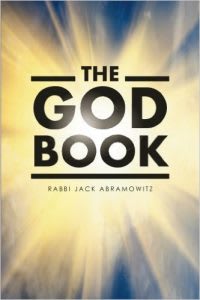47. Are God's Actions Meaningful?
The actions of a human being can be classified into four types: pointless, insignificant, in vain, and effective [III, 25]:
* Pointless actions serve no purpose. If you play with your hands while thinking, or doodle during a conference call, these are pointless actions.
* Insignificant actions serve a trivial cause. This includes the various forms of entertainment. The significance of an action depends largely on the intentions of the one performing it. For example, dancing or playing ball as a form of entertainment is insignificant but if done as a form of exercise, they could then be classified as effective actions.
* An action is performed in vain if its intended purpose is not met. If you search for a friend and do not find him, the search was in vain; if a doctor treats a patient who dies anyway, the effort was in vain.
* Effective actions serve a useful purpose.
In short, every action either has a purpose or it doesn't. (If it doesn't, the action is pointless.) That purpose is either important or it isn't. (If it isn't, the action is insignificant.) That purpose is either accomplished or it isn't. (If it isn't, the action is in vain.) If an action has an important purpose that is accomplished, it is considered an effective action.
This all applies to the actions of man. When it comes to God, however, none of His deeds can be considered pointless, insignificant or in vain. Everything He does has a reason, that reason is always important, and His goals are always achieved. This is demonstrated, for example, in Genesis 1:31, "God saw everything that He had made and, behold, it was very good."
Everything God makes is necessary, or at least useful, for His creatures. (Food is necessary, for without it, we would perish. A person can live without eyes, but they are indeed useful.) Philosophers assume that nothing God does is in vain. Therefore, everything in creation must have a purpose, though we may not know what that purpose is.
There are those who think that God's creations do not serve purposes for one another. Rather, they posit, every individual thing in the universe exists merely as a manifestation of God's will. This position cannot be accepted because if creations do not serve a purpose, they are by definition pointless. Were that the case, these actions would be inferior even to those of man. A human performs pointless actions in a state of unawareness, when his mind is occupied by other matters. Since God cannot be said to be unaware, one would then be compelled to conclude that He performs pointless actions intentionally, in a state of complete awareness. Clearly, this is a ridiculous conclusion. Therefore, all of God's creations must be said to serve a purpose.
Yes, the things in creation are the result of God's will. We see this in such verses as Psalms 135:6 ("God has done whatever He pleased"), Job 23:13 ("His soul desired it and He made it"), and Koheles 8:4 ("Who can say to Him, 'What are You doing?'"). But they are also the result of His wisdom, as is demonstrated through verses like Psalms 104:24 ("Hashem, how manifold are Your works! In wisdom You have made them all") and Proverbs 3:19 ("Hashem founded the earth in wisdom"). Everything was made in wisdom and, accordingly, serves a purpose.
A huge part of the reason why some people think aspects of creation are meaningless is that humans are egocentric. We tend to consider ourselves the center of the universe. Therefore, if something does not serve man, he tends to assume that it serves no purpose. Of course, this is not the case; God has many creations with their own independent existences, quite distinct from our own.
It is our own ego that tricks us into assuming that God has created anything without a purpose. The Torah both starts and ends disabusing us of this notion. At the start, it says "God saw everything that He had made and, behold, it was very good" (Genesis 1:31). At the end, "The Rock, His work is perfect" (Deuteronomy 32:4). The Rambam advises that we note this well.
The God Book – now available from OU Press!

